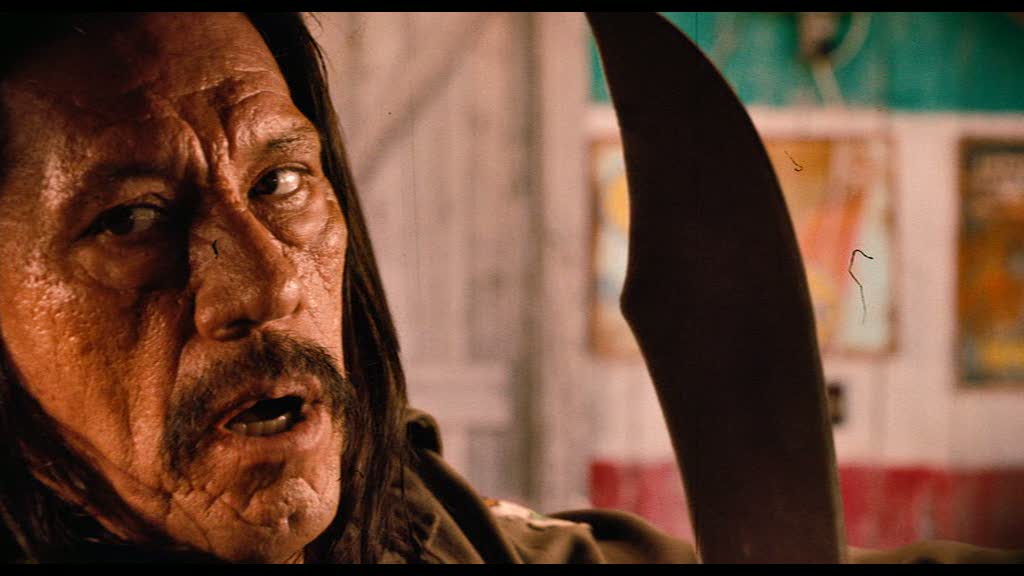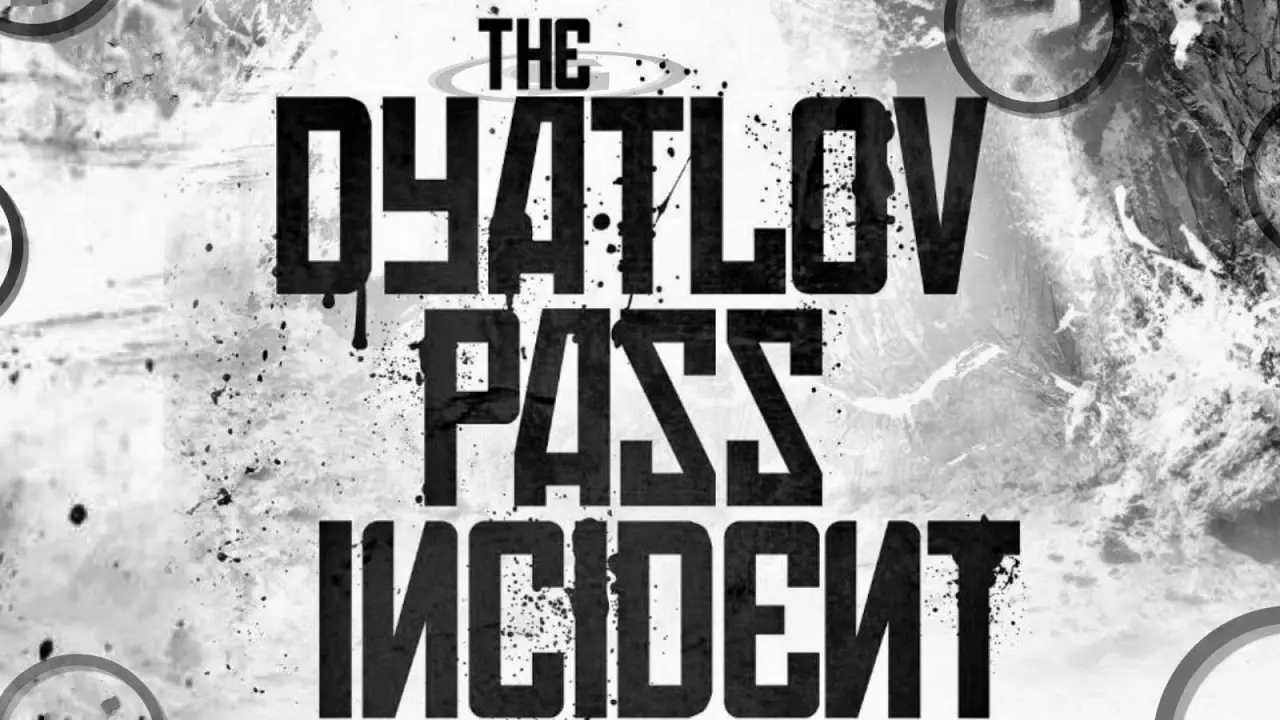
Robert Rodriguez can, when he wants to, make excellent, funny, tongue-in-cheek action-adventure films. More often than not, however, he slaps together random ideas, images, and inspirations, and passes them off as movies, and he could just be, in his way, the laziest real talent in Hollywood

Machete survives and lives as a wandering day labourer across the border in the US, where he’s chosen at random by Booth (Jeff Fahey) to assassinate Senator McLaughlin (Robert DeNiro), a strict anti-immigration politcian who’s secretly in murderous league with paramilitary border lord Von (Don Johnson). Machete, of course, would like to walk away, but Booth threatens him severely enough to make him go through with the killing. But Machete is double-crossed, as Booth is really McLaughlin’s gubernatorial aide/kingmaker, and the plan was his stunt to ensure the Senator’s re-election. They’re all, ironically, in league with Torrez, and the forces of good, represented by Machete, foxy police officer Sartana (Jessica Alba), and an illegal immigrant underground led by Luz (Michelle Rodriguez), mass together to fight this axis of big-end-of-town evil. Machete, recovering from a bullet wound and trying to keep clear of the cops, gets involved with both Luz and Sartana, as well as spending some quality pool time with Booth’s junkie and wannabe model daughter April (Lindsay Lohan) and her horny mother June (Alicia Marek). He also asks his brother, Padre Cortez (Cheech Marin) for help, and finds he’s already amassed a huge amount of evidence on Booth’s machinations, because he’s Booth’s confessor.

One of the rules of cheapjack ‘60s and ‘70s filmmaking was that if the trailer is good, the quality of the film is almost incidental. Rodriguez set himself a task here to make a film that quite literally lived up to the trailer. He fails spectacularly. One of the curiosities of this peculiar exercise was how poorly he interpolates many of the trailer’s “excerpts”: the only humour value left in them is the recognition factor. It would be easy to defend Machete’s lack of any kind of concision, tautness, or narrative decency on its being a satire, but that’s a cheap defence, compared to, say, the excellence of Edgar Wright’s Hot Fuzz (2006). Scenes lurch by without any sense of direction, and the characters don’t so much interact as graze against each other. On top of the screenplay, which seems initially to be lampooning cheesy fare but proves at last to actually be cheesy fare, Machete is so amateurish in the editing and staging of its fight scenes and so flat in its plotting and dialogue that any justification quickly melts away and it merely becomes a slightly inflated direct-to-video film. Machete completely lacks the sort of nuts-and-bolts workmanship necessary to make classic, genuine grindhouse fare work, never mind the kind of disciplined, keenly observant detail and inventive, careful structuring to create a good comedy. In fact, Machete’s posturing contempt for what it pretends to honour is finally galling and dispiriting.

Machete is occasionally sparked by moments of antic humour that do save it from being a complete waste of time, particularly in some of Machete’s methods of dispatching bad guys. The early gags of the fate of Machete’s partner, pledging his aide to the end only to die almost immediately, and his contending with the stark naked femme fatale (Mayra Leal) who keeps a cell phone up her vagina, are promising. When it’s mentioned in a hospital staff conversation that a human intestine reaches 60 feet in length, you know that soon enough that unravelling will be put to good use. Some jokes, like Marin’s priest offering Machete gigantic joints, and a brief glimpse of the website of Tom Savini’s assassin character, with his phone number, “1-800-HITMAN” flashing on screen, are pretty obvious, but get a laugh. Towards the end, Rodriguez milks the humour value of an army of Mexican rev-heads going to war, their jumping muscle cars followed up by a guy pushing an ice cream cart. Rodriguez’s non-subtextual subtext here, cheering on the barrio in taking on a coalition of white Anglo power and corrupt Latino overlords, is both guileless and yet imbued with a certain self-satirising zest. Some kudos, too, for the film’s very last joke, promising sequels with imaginative titles: stay tuned for Machete Kills and Machete Kills Again.

But as a movie, as opposed to a string of gags that probably sounded hilarious when improvised by the boys with one of those huge joints after a cast barbecue on the Planet Terror set, Machete is sloppy and skit-like. Potentially clever and dazzling motifs, like having De Niro’s scumbag senator hoist by his own immigrant-shooting petard, and Lohan dressing up as a killer nun to gain revenge, are employed with such a lack of simple care and concision in both set-up and pay-off, that the cumulative feeling is more one of embarrassment than delight, as if Rodriguez attempted to film a Hollywood dress-up party. Michelle Rodriguez’s appearance towards the end, surviving a maiming to be reborn as a super femme warrior, is a paltry repetition of Rose McGowan’s Planet Terror evolution. The cast, packed with potential and peppered with actors like Trejo, Johnson, Fahey, Seagal, and even Lohan, who have long needed substantial parts and who could have gone to town in a well-conceived action comedy, is wasted, laboriously fumbling with scant material.

Trejo, such a towering, forceful, gnarled presence in so many films, is actually completely wasted in his lead role, armed with a bare handful of mumbled lines. The film can’t deliver on the promised dirty-minded good time: sex scenes go to fade outs, and even Machete’s pool romp with April and June proves to have a silly motivation. Johnson and De Niro, and even Michelle Rodriguez and Alba, who banter with far more chemistry with each other than either can offer in scenes with Trejo, seem all dressed up with no real place to go. Fahey comes out of it best, pitching Booth on just the right level of slightly stylised ham that he emerges as an authentic B-movie villain. The faults would have been forgivable if the film was at all good on the basic level of action, but even there it’s often disturbingly half-hearted, sporting a final battle that Rodriguez uses chiefly to have one hero after another tramp past the camera and fire off a gun, hoping the audience will cheer their absurdity, rather than offering any actual prize or ground to be gained, and dramatic stakes are tossed pathetically away. A nadir is reached with the pathetic final tussle between Trejo and Seagal: when Seagal decides he can’t be bothered fighting anymore and performs a coup-de-grace on himself, twisting the machete jammed in his gut around until he drops dead, he presents a fairly good metaphor for the film itself.




















Rollerball (1975): Timeless Sci-Fi Classic